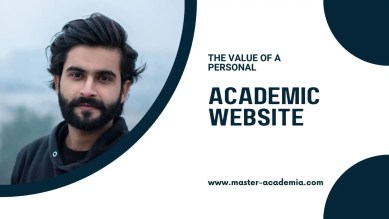
Co-authorship can be an efficient (and fun!) way to work on research publications. However, finding a suitable co-author is not always easy. Here are five proven ways to find co-authors to help you get started with your search for academic collaborators.
Contents
1. Finding co-authors in your department or lab
A good co-author shares your research interest, preferably complements your expertise, and is a nice person to work with. Therefore, a good starting point to find a co-author is in your department or laboratory.
The search for a suitable co-author often starts in a researcher’s immediate work environment: Deciding whether someone could be a good match to co-author a publication is easier when you know the person.
Thematic interests and expertise are crucial for co-authorship. However, interpersonal aspects should not be disregarded. Too often, the success or failure of a co-authored publication depends on the relationship between co-authors.
If personalities or work ethics don’t match, problems and conflicts among co-authors are almost inevitable.
On the other hand, you may have had several interesting chats with a colleague at the coffee machine. You admire that colleague’s work, and you seem to get along well. Maybe this could be your next co-author?
Even if you know a potential co-author quite well, because he or she works in the same institution, it is important to discuss the parameters of a collaborative project in advance.
For instance, you should make agreements on the author order, task divisions, and a timeline before embarking on a joint publication! These strategies prevent future conflicts! And preventing conflicts is particularly important if your co-author is a direct colleague.
You may also like: Co-authorship guidelines to successfully co-author a scientific paper
2. Finding co-authors at conferences
Academic conferences are great places to find co-authors. Conference sessions are usually organised thematically. This means that conference organisers place you in a session or track with other researchers who work on similar topics.
Therefore, the chance that you meet someone at a conference who shares your research interest is high. This is a good pre-condition for finding a suitable co-author!
Furthermore, a conference allows you to interact with researchers before inviting them to become co-authors. Thus, you can test the waters and assess whether you could get along.
Finding co-authors at an academic conference does require you to get out of your shell. But don’t worry. With a few simple networking hacks, anyone can make connections at academic conferences. Even at online conferences!
If you search for a co-author at a conference, make sure to
- connect with other presenters in your session and/or conference track;
- attend presentations by researchers who work on similar topics;
- ask interesting questions during the Q&A;
- and initiate chats after researchers’ presentation or during breaks.
3. Finding co-authors through cold-emailing
Many researchers have a handful of scholars who they repeatedly cite in their own work. If that is the case for you, you can consider inviting one of these scholars to co-author a publication.
You will have to send a ‘cold email’ if you don’t know each other and have no common connections who could make an introduction. Cold-emailing means you contact someone via email without any prior contact.
Follow the general guidelines for cold-emailing researchers. For instance, clearly state the purpose of your email, use the right formalities, and be concise.
Furthermore, you should provide an attractive and well-developed research idea when cold-emailing to find a co-author. Additionally, you should emphasise what you want the email receiver to contribute to the joint publication.
The target of such a cold email is a meeting (in-person or online) to discuss the research idea and possibilities for collaboration.
You should be prepared for a no when you go the cold-emailing route. Or for not receiving an answer at all. At the same time, cold-emailing has been the start of many successful co-authorship collaborations. So it is worth a try!
4. Finding co-authors through common connections
Co-authored publications are also a good way to display that your academic network expands your home institution. However, many early career scholars do not have an extensive academic network yet.
It often takes several years to develop a strong network in academia. Therefore, supervisors and other senior colleagues play an important role in introducing you to the right people.
Therefore, when you look for a suitable co-author, asking your supervisors or other colleagues for suggestions is a good strategy!
This strategy has two benefits: First, your supervisors or senior colleagues can recommend people who complement your work. Second, they can recommend people who they think would be good fit character-wise.
Thus, ask them for recommendations. And if possible, ask them to introduce you to their connections, as it increases your chance of receiving a response.
5. Finding co-authors via #AcademicTwitter
Twitter is incredibly useful for academic social networking. It allows you to follow new research and discussions in your field, exchange and discuss with others, and make new connections. One of these connections could be your next co-author!
Even if you are currently not looking for a co-author, it is good to be active on Twitter. It can provide opportunities in the future.
It can take a while to get the hang of Twitter as a researcher. You should explore which hashtags are used in your field, to find relevant tweets and accounts. If you are unable to find topic-specific hashtags, #AcademicTwitter is a good way to start.
If you have a question or look for a co-author for a specific project, just drop a tweet and include the #AcademicTwitter hashtag. There is a high chance that other academics respond, retweet your request, or point you in the right direction.
(Master Academia is very active on Twitter. If you have no success with your quest for a co-author on Twitter, feel free to tag @MasterAcademia_ in your tweet. Alternatively, you can contact me via a direct message on Twitter. I can either point you in the right direction, help you to reformulate your tweet to improve your chances of success, or share your request.)



